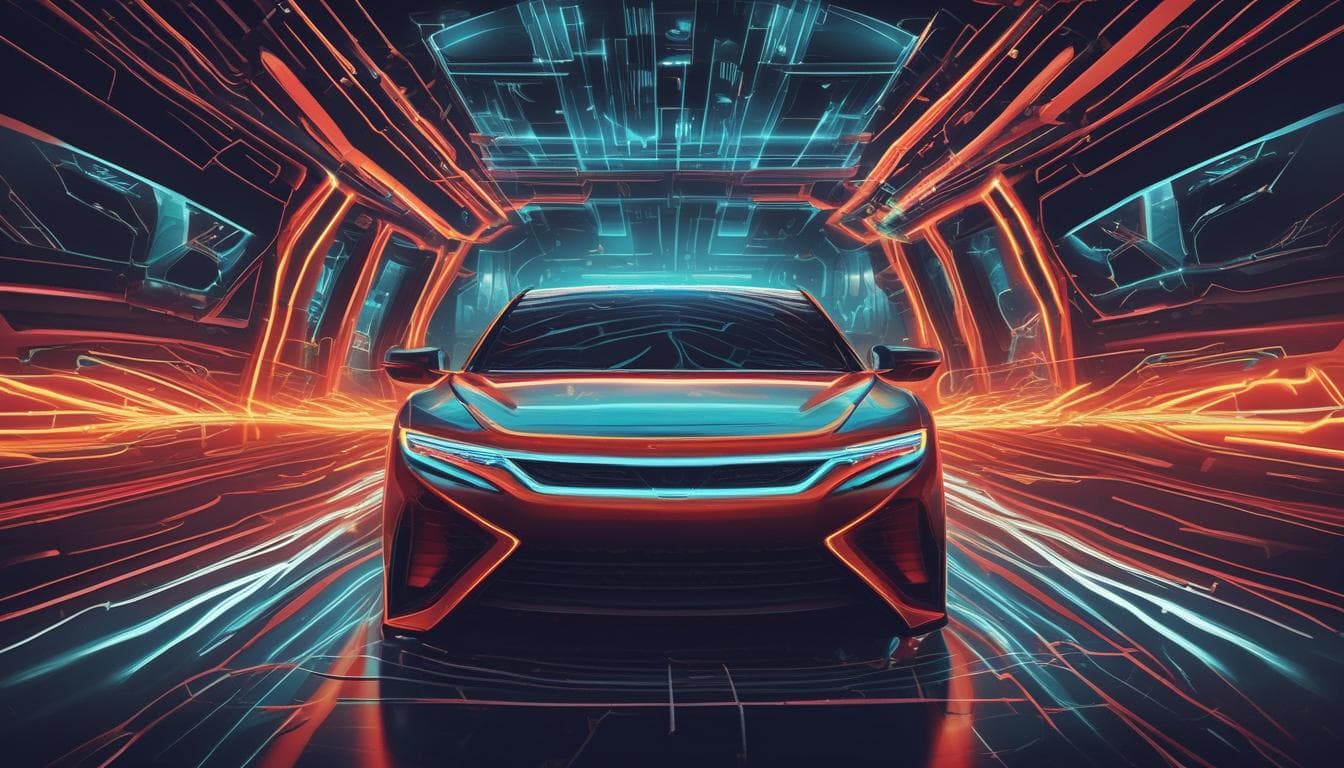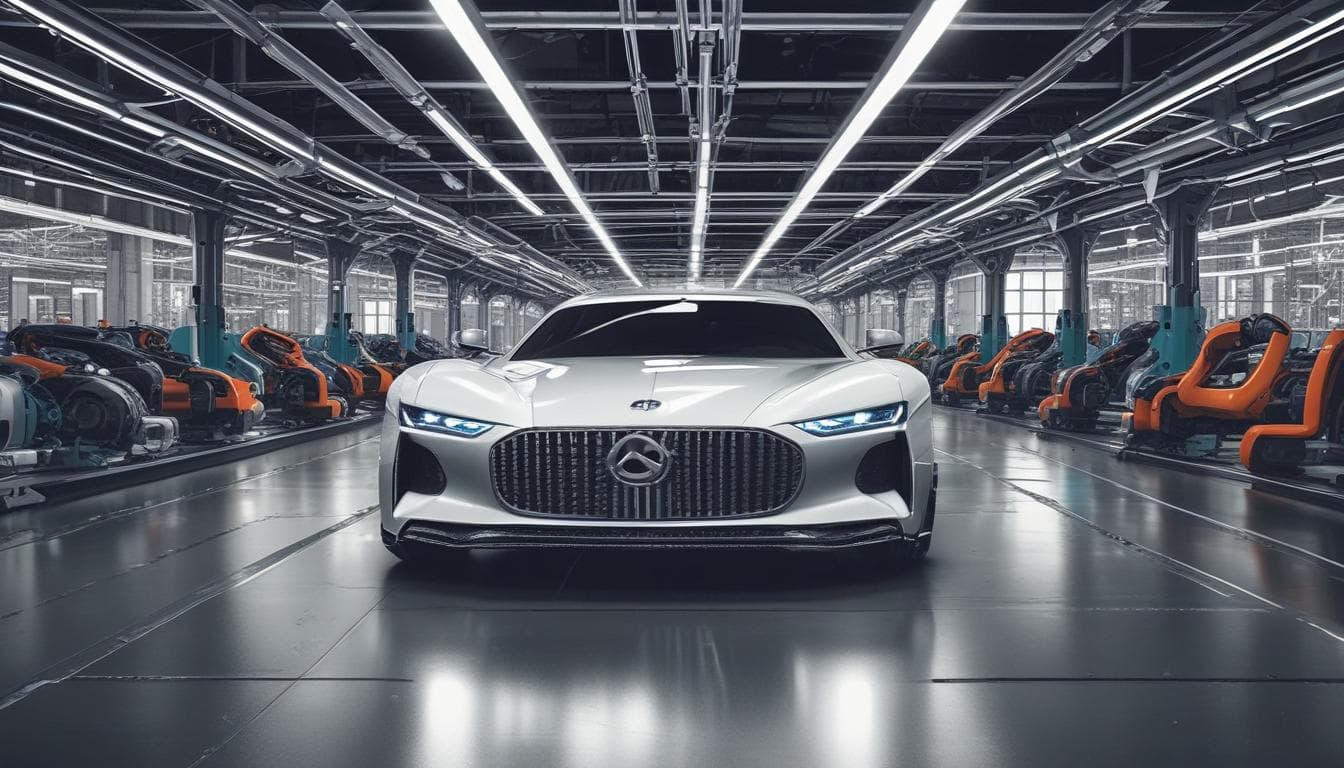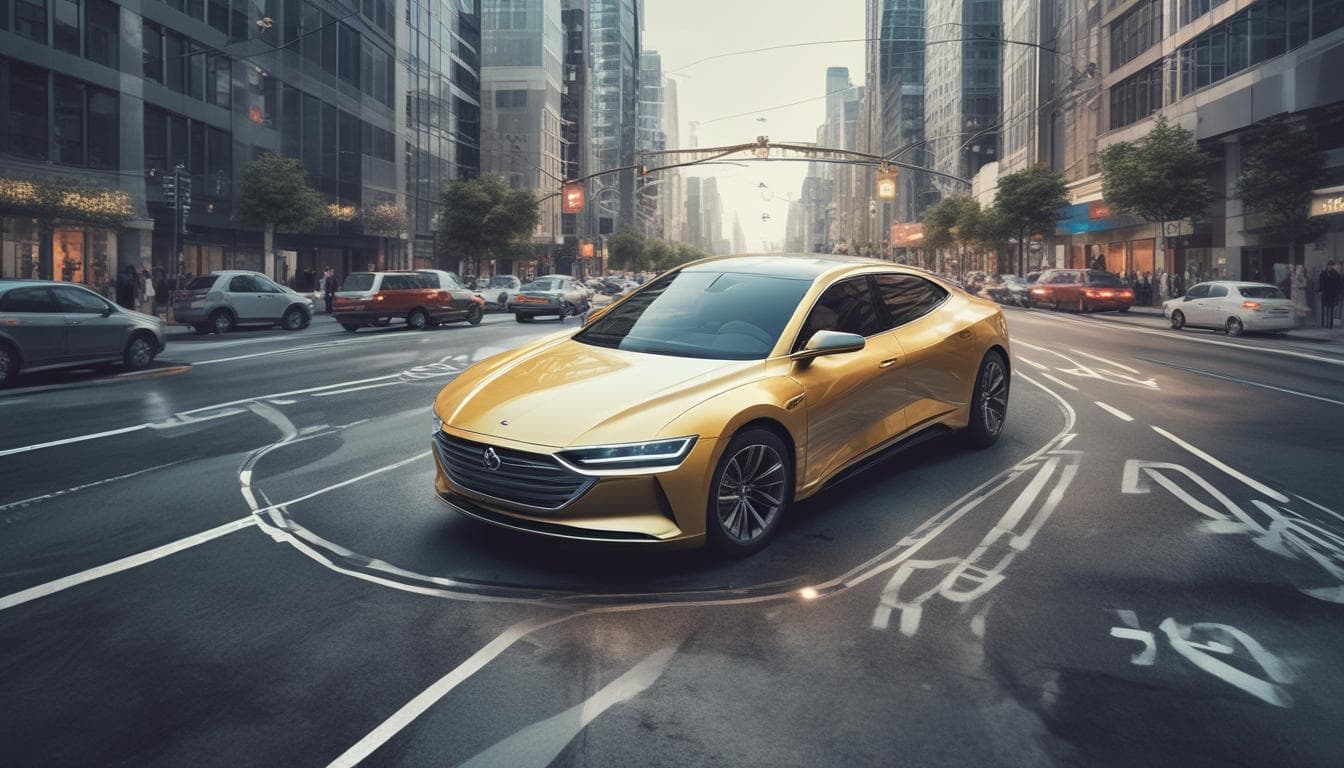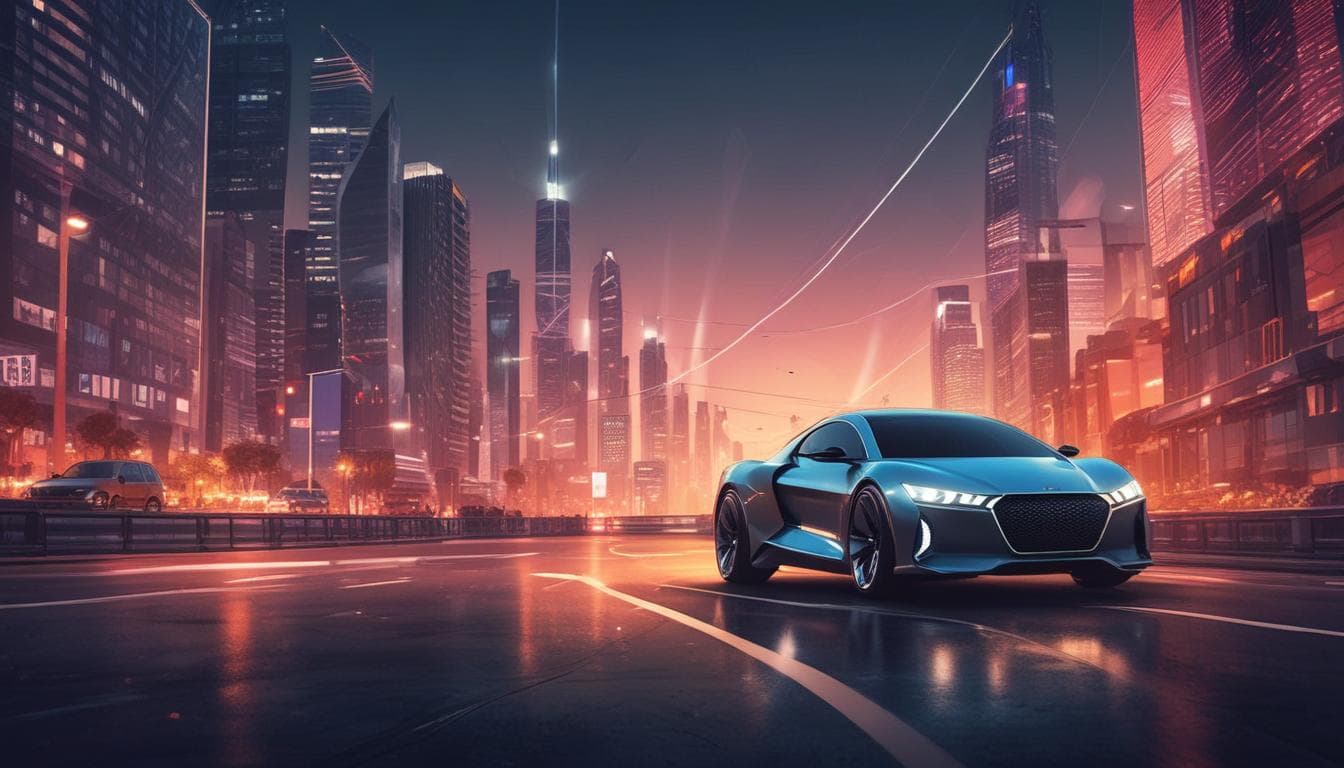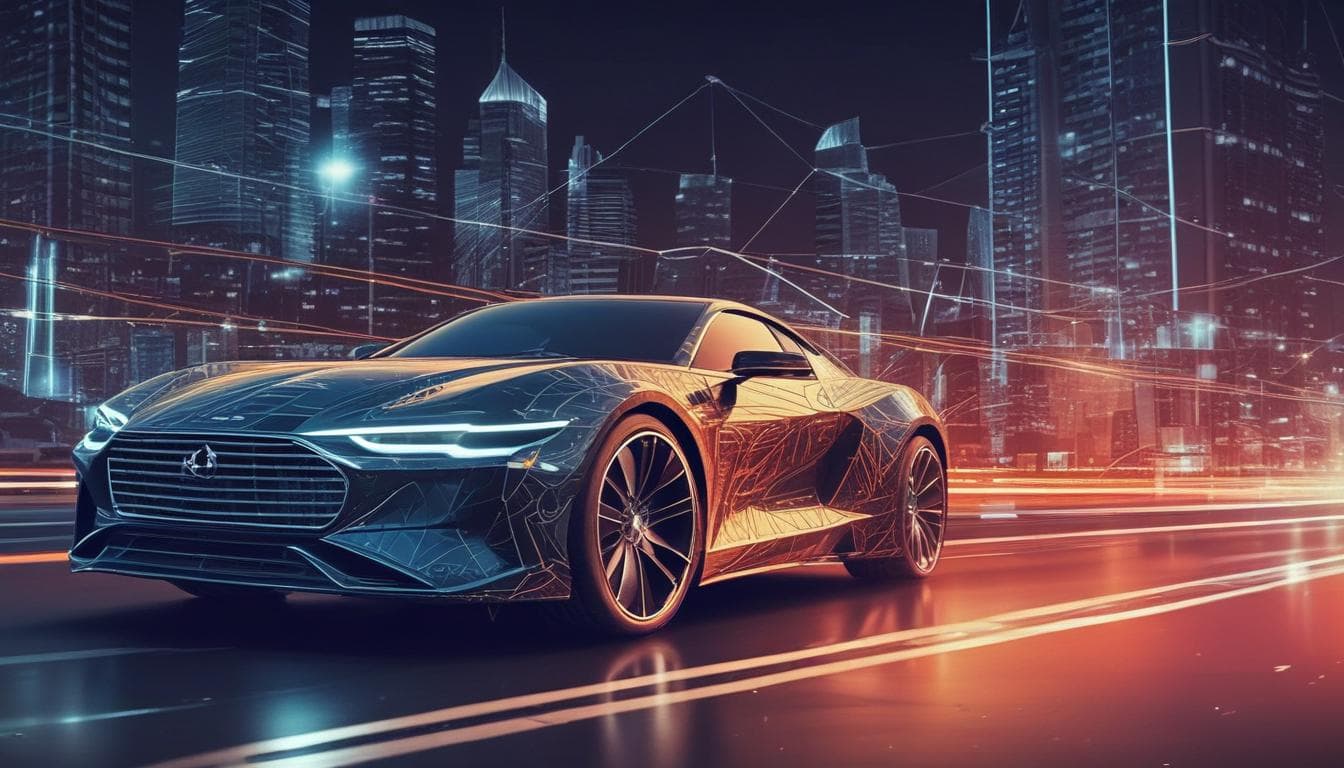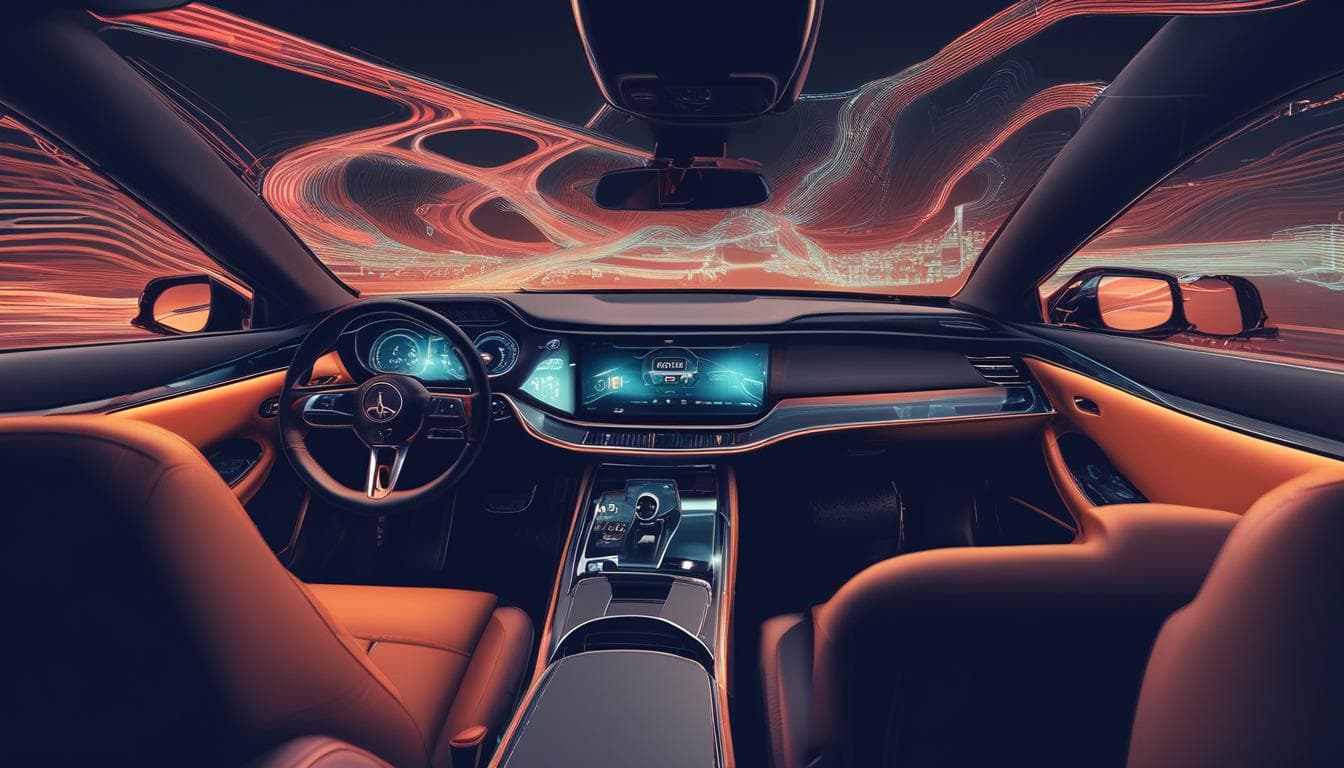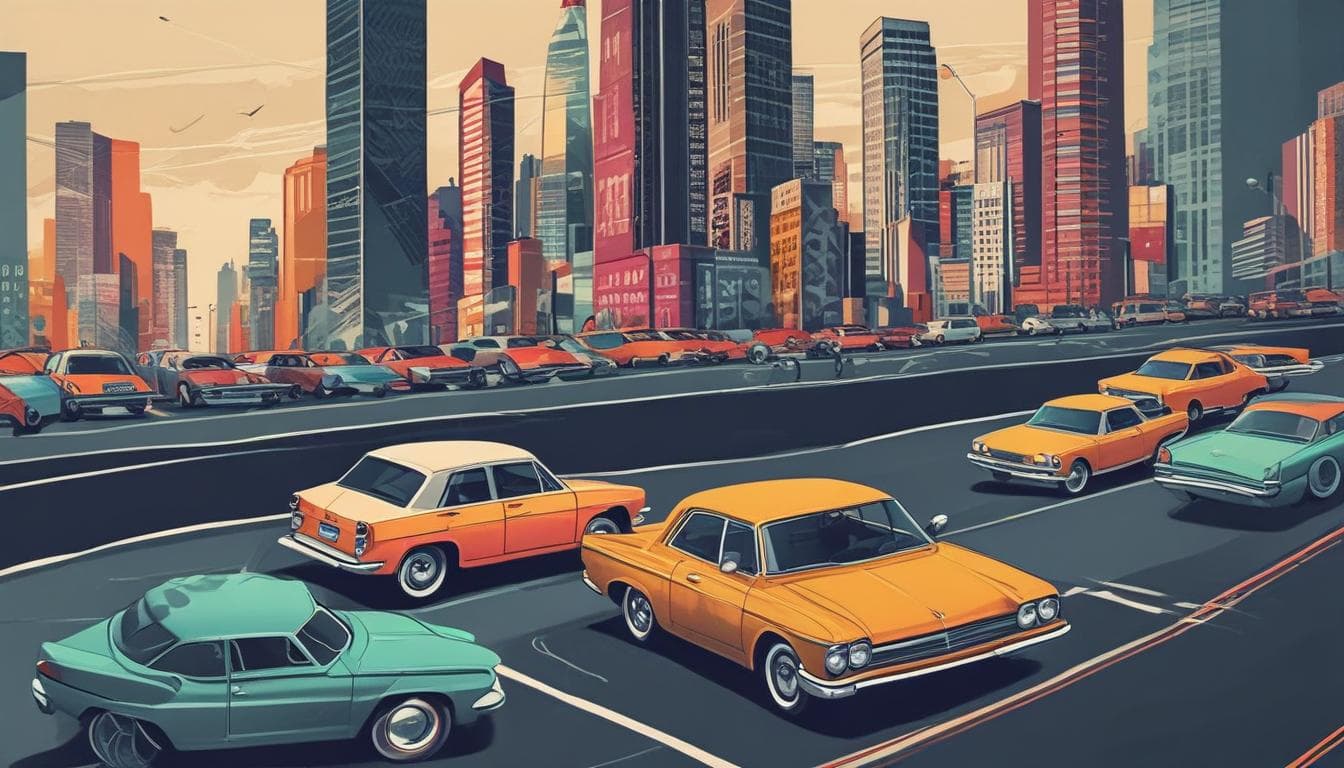Virtual and augmented reality technologies, key components of extended reality (XR), are revolutionizing various industries, and the automotive sector is no exception. VR and AR applications are transforming how cars are designed, manufactured, sold, and experienced by consumers, a shift that parallels the AI revolution in automotive in reshaping the industry. This article delves deep into the multifaceted impact of VR/AR on the automotive industry, exploring current applications and future possibilities.
Designing the Future: VR/AR in Automotive Design
Streamlining Design Processes with VR
VR allows designers to visualize and interact with 3D models of vehicles, often as part of the digital twin revolution, in a virtual environment. This immersive experience helps identify design flaws, ergonomic issues, and aesthetic imperfections early in the design process, significantly reducing development time and costs. Designers can experiment with different shapes, colors, and materials in real-time, fostering innovation and creative exploration, often through human-machine collaboration. 
Enhancing Collaboration with AR
AR overlays digital information onto the real world, allowing designers to superimpose virtual components onto physical prototypes. This facilitates seamless collaboration between design teams, enabling them to review and refine designs collaboratively in a shared physical space. AR also allows designers to visualize how the vehicle will look and function in real-world environments, enhancing the design's practicality and user-friendliness. 
Revolutionizing Manufacturing: VR/AR in Automotive Production
Optimizing Assembly Lines with AR
AR applications guide assembly line workers through complex assembly processes by providing real-time instructions and visual overlays directly onto the workspace, complementing advancements seen in the robotics revolution. This reduces errors, improves efficiency, and accelerates the manufacturing process. AR can also provide remote expert assistance, connecting on-site workers with specialists worldwide for troubleshooting and guidance.  For a broader view, consider how the 3D printing revolution is transforming the automotive industry.
For a broader view, consider how the 3D printing revolution is transforming the automotive industry.
Enhancing Training and Skill Development with VR
VR creates immersive training environments that replicate real-world manufacturing scenarios. This allows workers to practice complex procedures and develop essential skills in a safe and controlled environment, minimizing risks and maximizing learning outcomes. VR-based training is highly effective in improving worker proficiency and reducing the likelihood of costly errors during actual production. 
Transforming the Customer Experience: VR/AR in Sales and Marketing
Immersive Showrooms and Virtual Test Drives
VR enables customers to experience vehicles in immersive virtual showrooms, exploring different models and configurations without physically visiting a dealership, an idea further explored in discussions about driving into the metaverse. Virtual test drives provide realistic driving experiences, allowing potential buyers to evaluate the vehicle's performance and features in various environments.  You can also explore how digital showrooms are transforming automotive retail.
You can also explore how digital showrooms are transforming automotive retail.
Personalized AR Experiences for Enhanced Engagement
AR applications enhance the customer experience by providing interactive and personalized information about vehicles. Customers can use AR apps to view detailed 3D models of cars, explore their features, and even customize their dream car in real-time. 
The Future of VR/AR in the Automotive Industry
The potential of VR/AR in the automotive industry is vast and continues to expand. As these technologies evolve, we can expect even more innovative applications, such as:
- Predictive Maintenance: AR overlays can provide real-time diagnostics and maintenance information, enabling proactive repairs and preventing breakdowns, aligning with the rise of predictive maintenance in the industry.
- Autonomous Driving Development: VR simulations provide realistic environments for testing and refining autonomous driving algorithms, which is crucial for ethical AI in autonomous driving. This relates closely to the advancement of Advanced Driver-Assistance Systems (ADAS).
- In-Car Entertainment and Navigation: AR interfaces can enhance navigation, entertainment, and communication systems within vehicles, pushing the evolution of automotive human-machine interfaces. Learn about the hyper-personalization of in-car experiences.
In conclusion, VR and AR are transforming the automotive industry in profound ways, impacting every stage from design and manufacturing to sales and customer experience. These immersive technologies are not just futuristic concepts; they are rapidly becoming essential tools for automotive companies seeking to innovate, improve efficiency, and enhance customer satisfaction. The future of the automotive industry will undoubtedly be shaped by the continued development and integration of VR/AR, paving the way for a new era of automotive innovation. We encourage readers to explore the resources available online and stay informed about the latest developments in this exciting field. Embracing these technologies will be crucial for automotive companies to thrive in the increasingly competitive and technologically advanced landscape.
